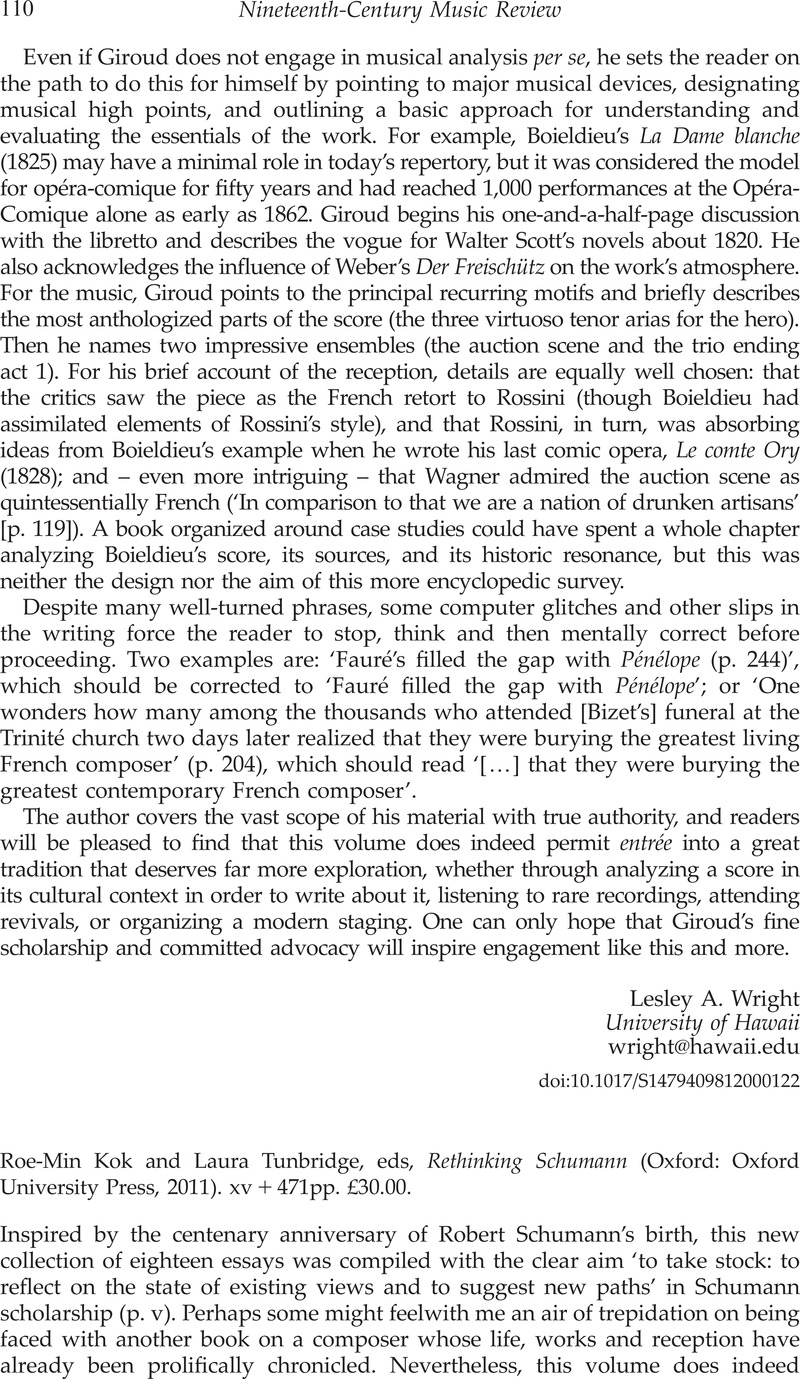No CrossRef data available.
Published online by Cambridge University Press: 24 May 2012

1 Prasenjit Duara, Rescuing History from the Nation: Questioning Narratives of Modern China, (Chicago: University of Chicago Press, 1995): 65–66Google Scholar.
2 Organised by Franz Liszt and Franz Brendel in Leipzig, 1857.
3 The concept of kulturnation, popular in Germany beginning in the eighteenth century, held that the country was bound together by its language, traditions, culture and religion.
4 Songs of Mary Queen of Scots (Baltimore, 1853), lyrics by ‘Mrs Crawford’ and music by George Barker (1812–1876).
5 Lewis, Jayne, Mary Queen of Scots: Romance and Nation (New York: Routledge, 1998)Google Scholar.
6 Krebs, Harald, Fantasy Pieces: Metrical Dissonance in the Music of Robert Schumann (Oxford: Oxford University Press, 1999)CrossRefGoogle Scholar.
7 Bischoff, Ludwig, ‘Review’, Rheinische Musikzeitung 2, nos. 19 & 20 (1851)Google Scholar.
8 WoO 3 (1844–53).
9 Rykoff explores ‘Schön Hedwig’ op. 106, ‘Ballade vom Haideknaben’ op. 122, no. 1 and ‘Die Flüchtlinge’ op. 122, no. 2.
10 Landis, J. D., Longing (London: Ballantine Books, 2000)Google Scholar.
11 Galloway, Janice, Clara (London: Jonathan Cape, Ltd., 2002)Google Scholar.
12 First performed in St Petersburg, 1910.
13 Inspired by the works of the nineteenth-century German Romantic painter Caspar David Friedrich, and first performed in New York in 1980.